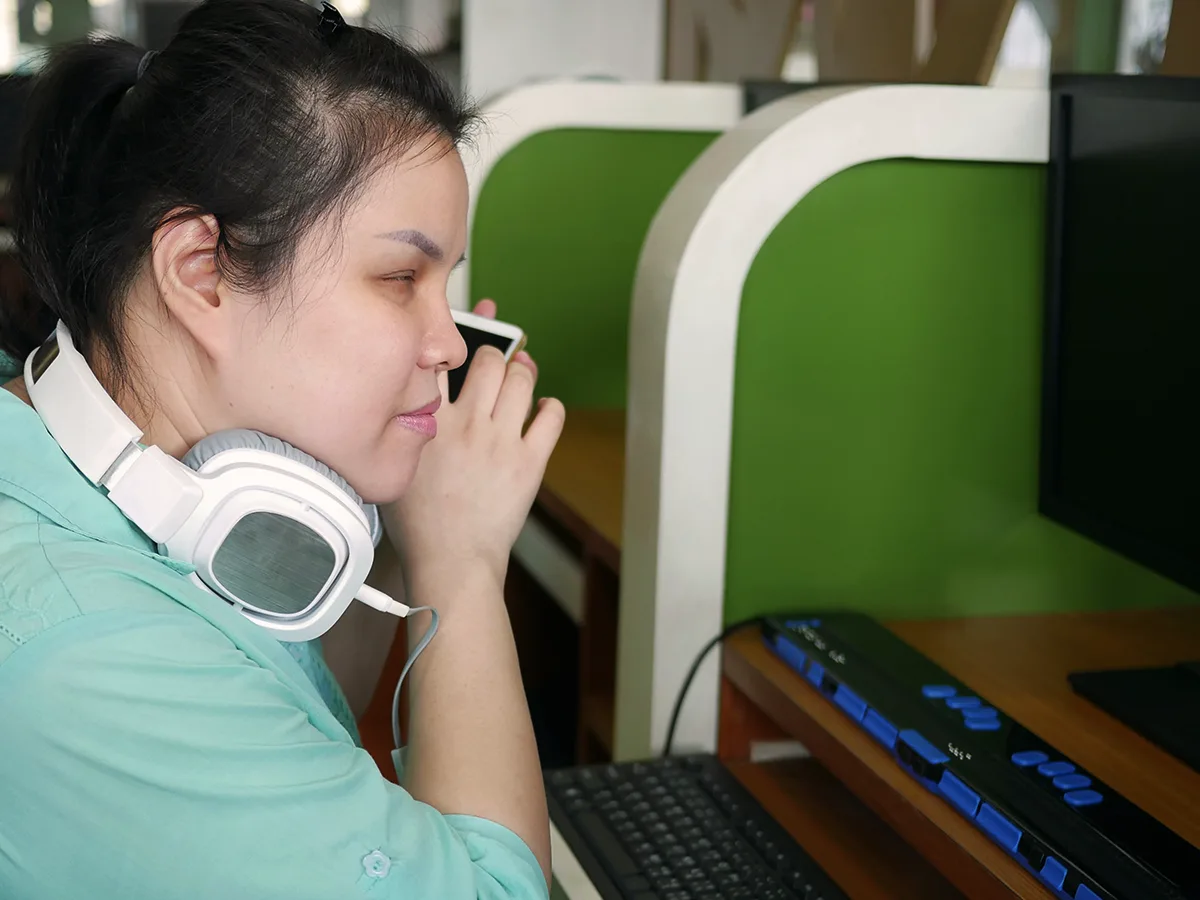3 big myths (and truths) about workplace accommodations

The Americans with Disabilities Act (ADA) guarantees workers with disabilities the right to reasonable at work, so they can have an equal chance to do their jobs.
But lots of people might be suspicious or feel frustrated when they see a co-worker using an accommodation. It can be challenging to find clear information about what workplace accommodations are, or how they function.
Here’s the truth: Accommodations make the workplace better for everyone. Here are three of the biggest myths about workplace accommodations.
Myth 1: Workplace accommodations are a form of favoritism or preferential treatment.
When everyone’s under a lot of pressure at work — particularly in a physically demanding job — employees might feel some irritation if they notice a co-worker using an accommodation. Sometimes, it can lead to perceptions of favoritism, especially if the co-worker’s disability isn’t obvious.
For example, one employee named Meghan might be seen taking more frequent breaks than everyone else. Her co-workers might start to think that she’s getting preferential treatment or bending the rules.
The facts
Accommodations aren’t favoritism — they’re designed to give everyone an equal chance to do their best at work. An accommodation addresses a real need.
But employers are required to keep their employees’ health information confidential. That means others on the team will not necessarily know the details behind an accommodation.
For instance, Meghan may have quietly asked for more frequent breaks to help manage her diabetes. Having a more flexible schedule could be an accommodation that the company approved so she can do the work while staying healthy.
The accommodation is not preferential treatment. It actually puts that co-worker on the same level as everyone else.
Myth 2: Employers aren’t allowed to discipline or fire employees who have accommodations.
This is a common area of confusion. Even employers and managers are sometimes worried about the rules surrounding the accommodations process. Some may go so far as to avoid discussing accommodations for fear of breaking the law.
Consider this scenario from the ADA National Network: Two people apply for a job, and one of the job requirements is to type 75 words per minute.
One applicant has a disability, and with a reasonable accommodation, they type 50 words per minute in the interview. The other applicant doesn’t have a disability, and they type 75 words per minute in the interview.
The employer may wonder, Do I have to hire the person with a disability, even though they didn’t meet the requirement?
The facts
The employer can hire the faster typist, as long as typing speed is an essential part of the job.
While reasonable accommodations are legally guaranteed, all employees — including those who rely on accommodations — must meet their employer’s performance standards.
Employees with and without disabilities are expected to perform the essential functions of their jobs to standards set forth by their employers. That means employees with disabilities can be held to the same standards as everyone else.
Myth 3: Accommodations aren’t relevant to people who don’t have a disability.
People who don’t consider themselves to have a disability might assume that they’ll never need to think much about workplace accommodations. They might think that accommodations only apply to someone else.
The facts
Most of us will need a workplace accommodation at some point during our careers. For example, a back injury could lead to needing a special desk or chair. Or cancer treatments could require more flexible scheduling or time off.
Even if you never end up needing an accommodation at work, it’s likely that accommodations will still make your job easier. For one thing, your co-workers will have the tools they need to do their jobs, which benefits everyone.
And it’s been shown that accommodations can lead to a more functional workplace in general. For example, an employer might add images to a training manual to help one specific employee, and then find out that the images are helping everyone learn the material more quickly.
More resources
Although there are plenty of myths about workplace accommodations, the fact is that accommodations are a powerful way to make workplaces better for everyone. Learn more about workplace accommodations and your rights at work:


